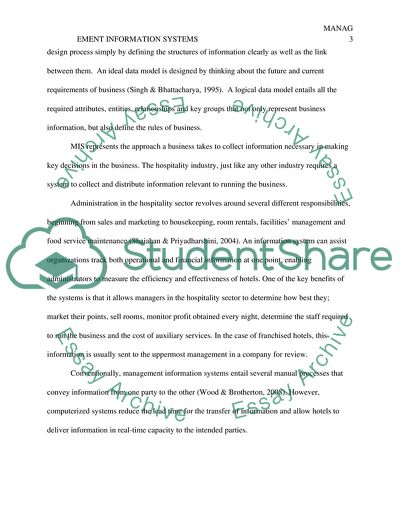Research and develop individual knowledge on management information Paper. https://studentshare.org/e-commerce/1784260-research-and-develop-individual-knowledge-on-management-information-systems-based-on-the-pms-systems-highlight-the-significance-of-the-application-of-mis-to-hotels
Research and Develop Individual Knowledge on Management Information Paper. https://studentshare.org/e-commerce/1784260-research-and-develop-individual-knowledge-on-management-information-systems-based-on-the-pms-systems-highlight-the-significance-of-the-application-of-mis-to-hotels.


